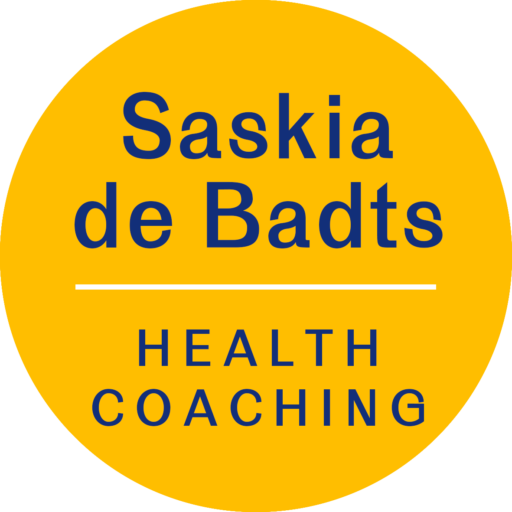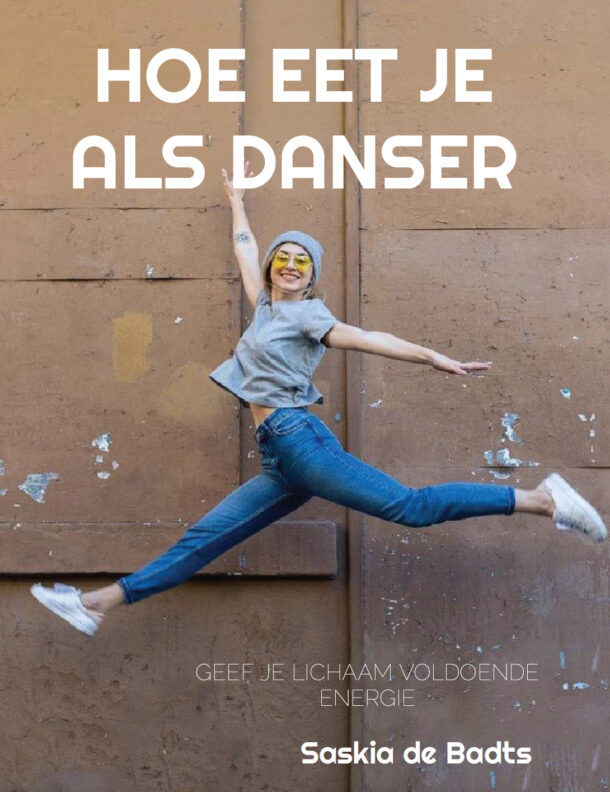Do you eat or don't you eat?
You have classes all day. You may also teach in your spare time yourself or be in shows for which you have to rehearse until late at night and on weekends in addition to your education. A busy and physically intensive schedule. You need energy to do all this. It is not rocket science to know that you have to eat enough to take in this energy. In general, dancers eat too little. This may be due to the busy schedule. You're so busy that you just forget to eat and don't think 'now I have to eat something' until it's very late. You don't eat or snack. But not eating can also have another reason: because you want to become or stay thin.
Every body is different
Of course, every body is different and has its own needs. When I ate something, I often felt so bloated. That's not nice when you're in a ballet class. I never looked at how I could solve that; I just didn't eat. I found a feeling of hunger very pleasurable. If I had that feeling, it was a sign to me that my body was not fed enough and that I had eaten too little. I thought I was getting thin and that was the intention. But you can't survive without food. I would have liked it if I had had a guideline or maybe even a lesson on how to keep yourself in great shape so you know what you can do. You then have a starting point from which you can see where your body functions best, so that you can then continue in an intuitive way. The thought of food often goes no further than do I eat or do I not eat. But in addition to this black and white idea, there is also a huge gray area that, in my personal experience, makes you much happier and more energetic.
Eat like a professional athlete
First, think about the number of hours you are physically active per day. A lesson often lasts an hour and a half. You have a number of lessons per day. You will soon be at 4.5 hours of exercise. If you consider that female students already consume 2500-3000 calories in 2.5 hours and male students 3000-3700, you cannot enter into an app that you only want to eat 1600 calories a day.
Dancing is top sport and a top athlete needs two to five times as much energy as people who do not exercise. Eating too little will reduce your performance and increase your risk of injury.
In addition to a good basis of carbohydrates, protein and fats, you also need 'exercise-specific' nutrition to deliver top performance.
A useful tool is the sports nutrition pyramid . You can see very well in the pyramid how your nutrition should be structured.
The base layer is basically everything from the disc of five. If you take the three macros in a good balance, then you're in the right place. This balance is different for each person. Experimenting is the only way to find out what works best for you.
The second layer is that sport-specific nutrition. If you move as intensively as a dancer, the base layer is not always sufficient. You need nutritious drinks and snacks in between. When I was training for the marathon, I found the ready-made gels very tasty and easy to take. They are not heavy on the stomach and give you enough energy again. I didn't have the time to make my own snacks at the time, so this was the perfect solution.
The tip of the pyramid consists of supplements. But beware: if you think you have too little of this, it is wise to talk to your doctor before you start buying things yourself. Your doctor can indicate through a conversation or tests what you can take in addition to your other meals. Use the pyramid from wide to narrow, bottom to top. So don't think: I do take supplements, then I don't get fat and I also get everything. You start with the full-fledged basic nutrition, see how you feel and then work your way up according to your needs.
To eliminate
Often carbohydrates and fats are the first thing to be eliminated from a diet, they have long had a reputation of being 'bad'. But each of the three macros does different work for your body; a good balance is therefore necessary. The relationship is very individual. Online you can find various tools that calculate the right balance for you. And then, in my opinion, there is also an important category in addition to these three. Food that is often labeled as 'bad' in the eyes of a dancer, but that is part of fun – a party, a night out –: cake, biscuits, sweets, fries. You can actually eat this. It won't kill your career, trust me.
Macros
So you need energy. A brief summary of what you should pay attention to.
- Carbohydrates
Almost everything we eat contains carbohydrates. Carbohydrates are the fuel for your body, you need them for sufficient energy. Think of bread, rice, pasta and vegetables.
Eating a chocolate bar for energy in between is not wise, because your energy also drops just as quickly. Eat a snack that gives you a lot of energy for a long time and always make sure that the three macros are represented. For example, a bowl of yogurt with nuts and some fruit. Delicious!
- Protein
Proteins are the building blocks of your body. They are important in making, keeping and repairing our muscles. The amino acids in proteins ensure that the small muscle tears are replenished. Proteins can be found in fish, meat, milk, cheese, eggs. For example, after a lesson or rehearsal, have a bowl of yogurt as a snack.
- Fats
Just like carbohydrates, fats provide energy and are an important building material for your body. Fats also ensure that vitamins such as vitamins A and C are absorbed by the intestines. Fats, such as those from fish, avocado and nuts are good for you. A delicious fillet of salmon with a well-filled salad is a great meal.
- Water
Dancers perspire a lot, so it is important that you drink at least before, during and after dancing. If you lose too much fluid, it will affect your performance. Keep drinking and you will feel that you keep enough energy.
Make sure you build up knowledge about the right nutrition for dancers. There are courses that pay attention to this and more and more can be found online. Remember that every body is different, so listen to your own body and do what feels right. Try to eat a varied and balanced diet as much as possible to avoid missing out on certain nutrients. And don't forget to treat yourself. Something tasty or fast food is certainly possible sometime. If you deny yourself things, chances are that at some point you feel so excited that you eat too much of it. Don't put such a huge stamp on it. If you fancy a cookie, you can just take it. Once more; It won't kill your career.

